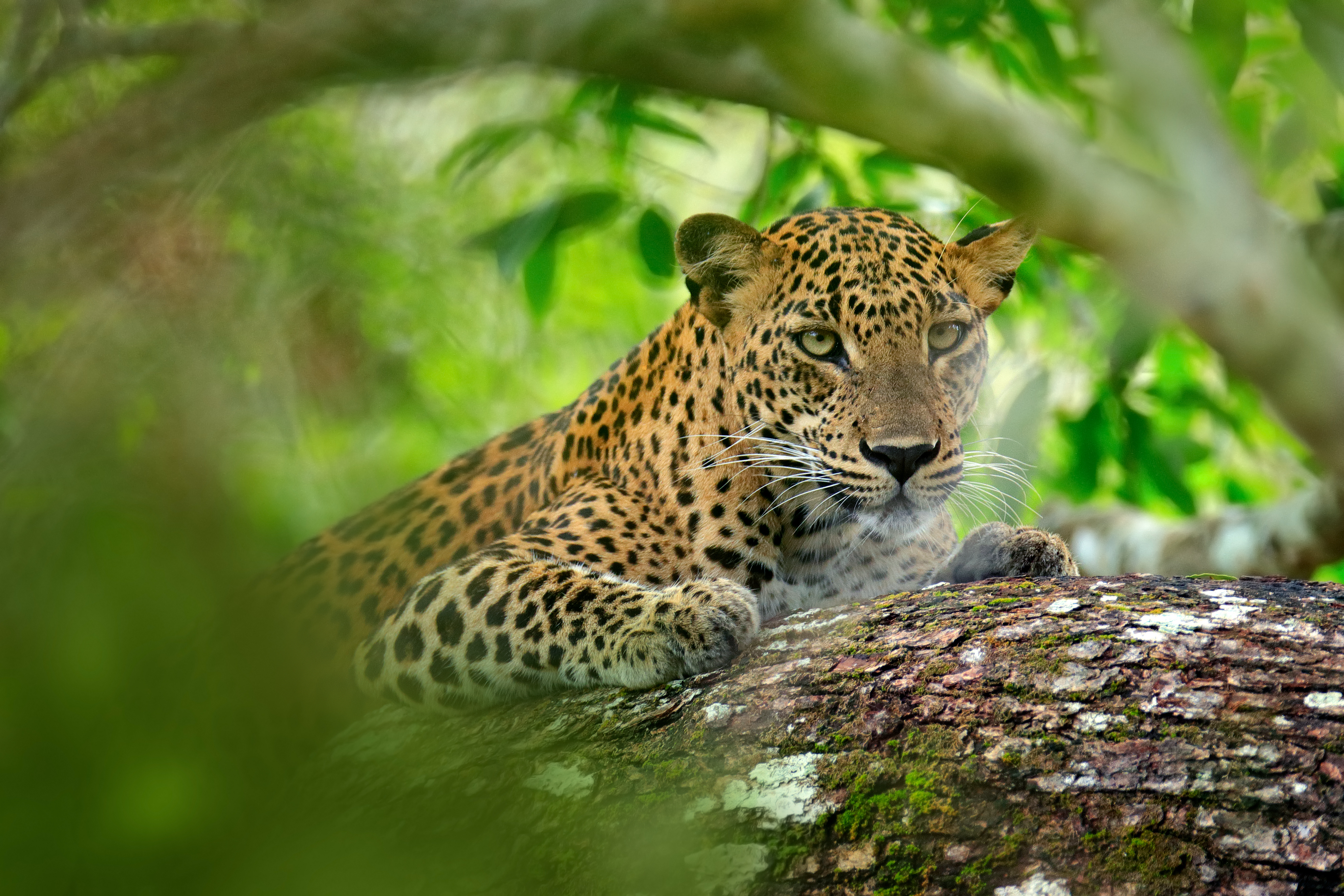
Colombo, Sri Lanka – 19 August 2025 – Sri Lanka today launched its first-ever livestock insurance scheme to address human–wildlife conflict and protect the endangered Sri Lankan Leopard (Panthera pardus kotiya). The initiative was unveiled by the United Nations Development Programme’s Biodiversity Finance Initiative (UNDP BIOFIN), in partnership with the Wildlife and Nature Protection Society (WNPS) and LOLC Insurance, under the guidance of the Department of Wildlife Conservation (DWC).
This first-of-its-kind programme provides rapid monetary compensation to farmers who lose livestock to leopard predation, thereby protecting rural livelihoods while reducing retaliatory killings of this keystone species.
The Sri Lankan Leopard is the apex predator of the island’s terrestrial ecosystems, helping regulate herbivore populations and maintain ecological balance. As a keystone species, its survival is critical for healthy habitats, and its presence draws thousands of tourists annually to national parks. However, as natural prey becomes scarce, leopards sometimes hunt livestock in nearby villages. These incidents can cause significant economic losses for farmers and have led to illegal retaliatory killings—through poisoning, snaring, or shooting—that further endanger the species.
Reflecting on the initiative, Ranjan Marasinghe, Director General of the Department of Wildlife Conservation, said: “This programme offers a practical and timely solution to a long-standing challenge in leopard conservation. By ensuring affected farmers are compensated swiftly and fairly, we reduce the risk of retaliatory actions and build trust between communities and conservation authorities. It is a proactive step towards securing the future of Sri Lanka’s iconic apex predator while safeguarding rural livelihoods.”
Baseline research by WNPS in Sigiriya—one of six leopard research hubs across the country—found frequent livestock predation near protected areas. In many cases, incidents were not officially reported, limiting effective responses.
How the Scheme Works
The Livestock Compensation Programme was developed in direct response to these findings.
Under the new scheme, affected farmers can report livestock losses to a designated WNPS officer. A team from DWC, supported by veterinary and Grama Niladhari officers, will verify the incident. Once approved, compensation is paid within 72 hours—swiftly easing the financial burden on farmers.
UNDP BIOFIN Sri Lanka covers the cost of the insurance premiums, while LOLC Insurance serves as the official provider.
Azusa Kubota, UNDP Resident Representative in Sri Lanka, stated: “This is more than an insurance scheme. It’s a nature-based solution that supports biodiversity, protects livelihoods, and helps Sri Lanka deliver on its sustainable development and conservation goals.”
Photo: Azusa Kubota, UNDP Resident Representative in Sri Lanka
Beyond Compensation: Preventing Future Losses
Beyond immediate relief, the programme promotes preventative measures such as predator-proof night-time enclosures, communal livestock pens for shared overnight housing, and an innovative ‘Cattle Bank’ system, which offers replacement animals instead of monetary payouts. These initiatives aim to reduce livestock losses, prevent ‘revenge killings,’ and foster coexistence between people and leopards.
Graham Marshall, President of the Wildlife and Nature Protection Society, said, “Lasting conservation depends on long-term solutions that benefit both people and wildlife. This compensation programme is one such initiative - practical, science-based, and rooted in the trust we build with communities over time.”
Spencer Manuelpillai, WNPS Project Lead, added, “We translated field research into real action. Rather than waiting, we designed a mechanism that tackles the core of the conflict while supporting affected communities.”
Kithsiri Gunawardena, Chairman of LOLC Insurance, emphasized the private sector’s role: “We’re proud to pioneer a policy that serves both people and nature. Conservation is everyone’s responsibility.”
The Sri Lankan Leopard plays a critical ecological role and supports the country’s vibrant wildlife tourism economy. This initiative offers a replicable model for how financial tools can help conserve biodiversity while strengthening community resilience.
Categories
Countries
Archives
- September 2022 (5)
- August 2022 (4)
- June 2022 (3)
- May 2022 (2)
- April 2022 (3)
- March 2022 (9)
- February 2022 (4)
- January 2022 (3)
- December 2021 (3)
- November 2021 (5)